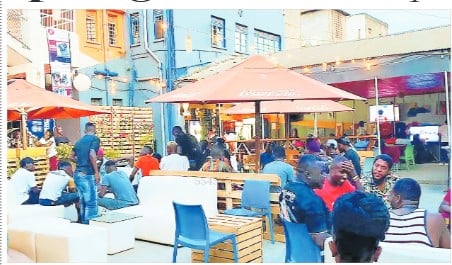Prime
High cost of education requires urgent government intervention

Author: Andrew Bakoraho
What you need to know:
- Besides rising prices of genuine scholastic requirements like foods, fuel, power, capital, and salaries which proprietors relied on to hike fees, their other greedy actions of turning schools into pseudo manufacturers (providers) of school uniforms, stationery, compulsory meals, extra coaching lessons and exams, transport, loan servicing fees, and exaggerated extracurricular requirements, all of which must be purchased from the school at inflated prices ( black market) higher than market prices.
Emerging out of a two-year Covid-19 induced lockdown, schools like other businesses in other sectors, are experiencing rising operational costs which in turn are shifted to final consumers in form of hiked fees and prices for other exaggerated scholastic requirements.
Although the situation is being blamed on prolonged economic- crippling SOPs which government preferred to tame Covid-19, it should be noted that domestic prices for social services were expensive more especially in profit-driven private sector even before the pandemic hence classifying them as “services for the rich”.
Unicef, which is supporting quality education delivery in more than 30 Ugandan poorly performing districts, had its 2019 annual report indicating that only one in four children who start primary under UPE school makes it to secondary while more than 60 percent of teachers were absent in over half of all Uganda public schools.
Despite these challenges, results of Uganda National Household Survey of 2020 showed enrollment rate increased to 10.7m from 3.1m whereas literacy rate jumped to 76 percent in schools under UPE since policy introduction in 1997.
It remains Ugandans’ wish that government-aided schools continue to expand and improve the quality of education since fees and other requirements demanded by private schools are becoming unbearable.
Besides rising prices of genuine scholastic requirements like foods, fuel, power, capital, and salaries which proprietors relied on to hike fees, their other greedy actions of turning schools into pseudo manufacturers (providers) of school uniforms, stationery, compulsory meals, extra coaching lessons and exams, transport, loan servicing fees, and exaggerated extracurricular requirements, all of which must be purchased from the school at inflated prices ( black market) higher than market prices.
This requires urgent government intervention. This perhaps explains low turn up among private-school going students. Taking away the liberty of parents to buy scholastic goods at market price is worsening the already bad situation, worse still each parent suffers individually as school management of private schools never have a general meeting such challenges would be shared.
Additionally, exploiting liberalised space and less stringent education policy on key facilities required starting a school, shrewd but insensitive citizens are turning residential homes into mini nurseries and schools. As substandard as they appear, without key facilities like enough space, firefighting equipment, health neighboring environment, and competent teachers, have, however, attracted pupils/ students from fast urbanizing communities because of the transport cost involved in taking students to known public schools.
With an additional of almost 1.4 million children to our population annually due to high birthrates, and congestion in unplanned fast urbanising communities, government-aided schools do not only need to increase space but new schools in new communities should be built. Finally, government as a policy designer and regulator remains largely responsible to device practical interventions to check various erosive currency - value inflationary pressures driving prices of goods and services crazy - not only in social sectors but in the entire economy.
Such price stabilisers include increasing investment in food processing and storage facilities so that perishable foods are safeguarded for scarcity periods when prices shoot high. This practically limits exporting them at give-way prices during harvesting season. With effective storage, farmers who want quick cash should through their formal groups use warehouse receipt system introduced a few years ago.
Construction of new public schools in new communities and recruitment of competent staff, increased supervision of head teachers and board of governors of public institutions, stringent education policy free of corruption, connivance, and incompetence would help save students from risky entrepreneurs of private schools exposing students to danger of death.
Besides tax reliefs, Central Bank through its monitory tool of selective credit control should lend commercial banks at low interest rates and direct them to equally prioritise education, agriculture or health with cheap loans. Government should require proprietors of private schools during registration not to force parents to buy scholastic merchandise from the school. Buying should be optional.
Mr Andrew Bakoraho is a writer advocate for good governance
[email protected].




